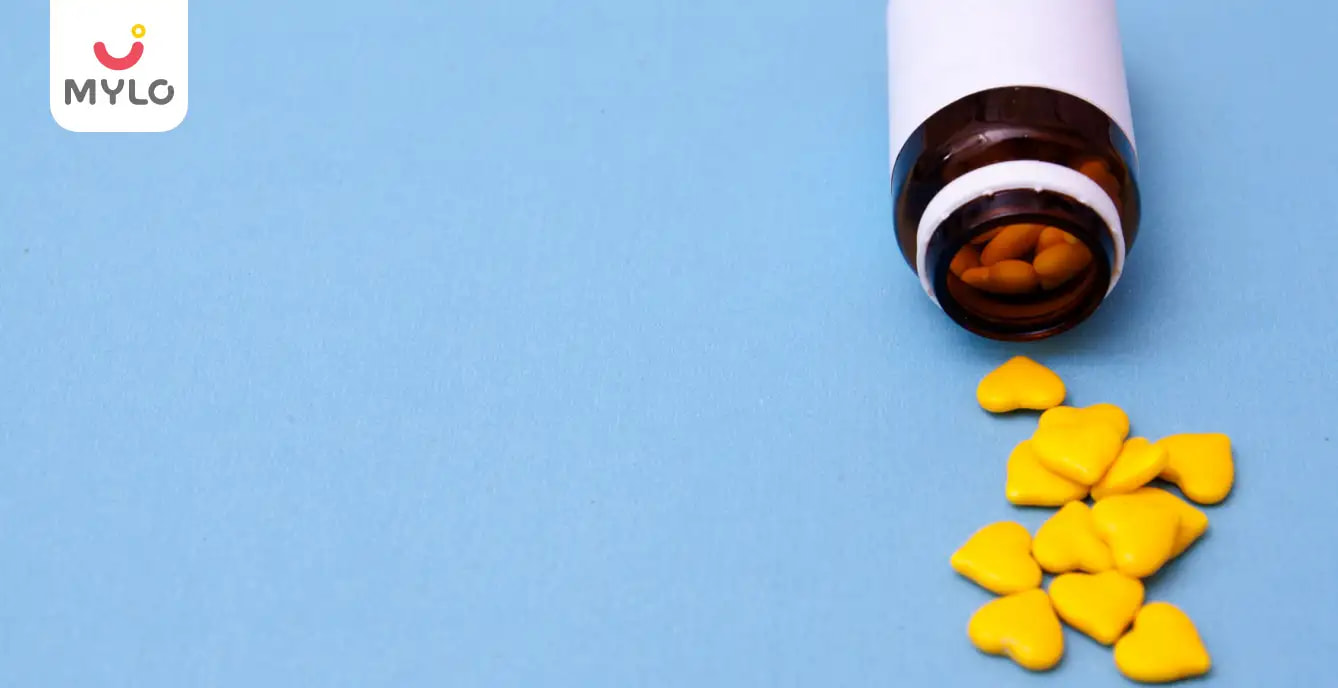- Home

- Placebo: Meaning And Effects
In this Article
Pregnancy
Placebo: Meaning And Effects
Updated on 3 November 2023
The placebo effect is a fascinating psychological phenomenon with a long history. While the placebo effect has been known and documented for centuries, there is still much we don’t understand about it. In this blog post, we will explore the meaning and effects of the placebo effect, as well as some theories about how and why it works.
What Is the Placebo Effect?
The Placebo Effect is a phenomenon whereby a person experiences positive results from a medicine or treatment despite it not being an active treatment. The word "placebo" comes from the Latin word "placēre", which means "to please". The Placebo Effect occurs because the person believes that the medicine or treatment will work, and this belief leads to positive changes in their health. The power of the placebo effect has been shown in many studies, and it is thought to be one of the key mechanisms behind the success of numerous placebo-controlled clinical trials.
How Are Placebos Used?
There are a number of ways in which placebos can be used. One way is to use them in research studies. In these studies, participants are typically divided into two groups, with one group receiving the actual treatment under investigation and the other group receiving a placebo. This allows researchers to see if any observed effects are due to the treatment itself or simply due to the participants’ expectations.
Another way that placebos can be used is as a form of treatment. This is most commonly seen in cases where there is no known effective treatment for a condition, such as chronic fatigue syndrome or irritable bowel syndrome. In these cases, patients may be given a placebo in order to help them feel better. While there is no evidence that placebos can actually cure these conditions, they can often help alleviate symptoms and improve quality of life.
3 Responses to the placebo effect
There are often 3 responses to a placebo effect: positive, negative, or neutral.
1. In a positive response to a placebo, the person who takes the placebo may feel better because they expect to feel better. The power of suggestion is strong and can influence the way we feel.
2. The negative response to a placebo is known as the nocebo effect. The person who takes the placebo may feel worse because they expect to feel worse.
3. The neutral response to a placebo is when there is no change in the person's condition. This can happen when the person taking the placebo does not have any expectations about how they will feel.
Conditions Which Can Be Effectively Combatted By Placebo
For those considering using a placebo to treat any condition, it is important to speak to a doctor first. While there are risks associated with any treatment, the risks associated with a placebo are usually very low. Here are a few conditions where a placebo has shown some effectiveness:
1. Depression
Depression is a mood disorder that causes a persistent feeling of sadness and loss of interest. It affects how one feels, thinks, and behaves, and can lead to a variety of emotional and physical problems.
2. Sleep Disorders
Sleep disorders are a type of mental illness that can severely impair a person's quality of life. There are many different types of sleep disorders, including insomnia, sleep apnea, and narcolepsy. Sleep disorders can cause a variety of problems, such as fatigue, daytime sleepiness, difficulty concentrating, and irritability.
3. Pain
Pain is a universal experience and one that can be difficult to manage. Painkillers are one option for treating pain but can have serious side effects. Thus, placebos are another option that can be effective in reducing pain.
The mechanisms by which placebos work are not fully understood, but it is thought that they work by altering the brain's perception of pain.
4. Irritable Bowel Syndrome
Irritable bowel syndrome (IBS) is a chronic condition that affects the large intestine. Symptoms include abdominal pain, bloating, gas, diarrhea, and constipation. IBS can be debilitating, preventing sufferers from going to work or school and participating in normal everyday activities. There is no cure for IBS, but treatments focus on relieving symptoms so that sufferers can manage the condition.
5. Menopause
Menopause is a period in a woman's life when she no longer has menstrual periods. It usually occurs around age 51. Menopause is not a disease, but it can cause some symptoms, such as hot flashes and vaginal dryness. Some women also have mood changes or trouble sleeping. Menopause does not need to be treated with medicine. But if menopausal symptoms bother you, there are treatments that can help, including hormone therapy, vaginal lubricants, and antidepressant medicines.
Conclusion
In conclusion, the placebo effect is a powerful phenomenon with implications for both medical research and clinical practice. Placebos can produce real, measurable, and clinically significant improvements in health outcomes. The mechanisms underlying the placebo response are complex and not fully understood, but involve both psychological and biological factors.
References
1. Pardo-Cabello AJ, Manzano-Gamero V, Puche-Cañas E.(2022). Placebo: a brief updated review. Naunyn Schmiedebergs Arch Pharmacol.
2. Wager TD, Atlas LY. (2015). The neuroscience of placebo effects: connecting context, learning and health. Nat Rev Neurosci.
Tags
Placebo: Meaning And Effects in Hindi, Placebo: Meaning And Effects in Tamil, Placebo: Meaning And Effects in Telugu, Placebo: Meaning And Effects in Bengali



Written by
sakshi prasad
Get baby's diet chart, and growth tips

Related Articles
Related Questions
Influenza and boostrix injection kisiko laga hai kya 8 month pregnancy me and q lagta hai ye plz reply me

Hai.... My last period was in feb 24. I tested in 40 th day morning 3:30 .. That is faint line .. I conculed mylo thz app also.... And I asked tha dr wait for 3 to 5 days ... Im also waiting ... Then I test today 4:15 test is sooooo faint ... And I feel in ma body no pregnancy symptoms. What can I do .

Baby kicks KB Marta hai Plz tell mi

PCOD kya hota hai

How to detect pcos

Related Topics
RECENTLY PUBLISHED ARTICLES
our most recent articles

Diet & Nutrition
গর্ভাবস্থায় আলুবোখরা: উপকারিতা ও ঝুঁকি | Prunes During Pregnancy: Benefits & Risks in Bengali

Diet & Nutrition
গর্ভাবস্থায় হিং | ঝুঁকি, সুবিধা এবং অন্যান্য চিকিৎসা | Hing During Pregnancy | Risks, Benefits & Other Treatments in Bengali

Women Specific Issues
স্তনের উপর সাদা দাগ: লক্ষণ, কারণ এবং চিকিৎসা | White Spots on Nipple: Causes, Symptoms, and Treatments in Bengali

Diet & Nutrition
গর্ভাবস্থায় পোহা: উপকারিতা, ধরণ এবং রেসিপি | Poha During Pregnancy: Benefits, Types & Recipes in Bengali

Diet & Nutrition
গর্ভাবস্থায় মাছ: উপকারিতা এবং ঝুঁকি | Fish In Pregnancy: Benefits and Risks in Bengali

Diet & Nutrition
গর্ভাবস্থায় রেড ওয়াইন: পার্শ্ব প্রতিক্রিয়া এবং নির্দেশিকা | Red Wine During Pregnancy: Side Effects & Guidelines in Bengali
- ইনার থাই চ্যাফিং: কারণ, উপসর্গ এবং চিকিৎসা | Inner Thigh Chafing: Causes, Symptoms & Treatment in Bengali
- গর্ভাবস্থায় ব্রাউন রাইস: উপকারিতা ও সতর্কতা | Brown Rice During Pregnancy: Benefits & Precautions in Bengali
- Velamentous Cord Insertion - Precautions, Results & Safety
- Unlock the Secret to Flawless Skin: 7 Must-Have Qualities in a Face Serum
- Unlock the Secret to Radiant Skin: How Vitamin C Serum Can Transform Your Complexion
- Gender No Bar: 10 Reasons Why Everyone Needs a Body Lotion
- Unlock the Secret to Radiant Skin How to Choose the Perfect Body Lotion for Your Skin Type
- Top 10 Reasons to Apply a Body Lotion After Every Bath
- Communication in Toddlers: Milestones & Activities
- How to Improve Vocabulary for Toddlers?
- A Comprehensive Guide to Understanding Placenta Accreta
- Vulvovaginitis in Toddlers Causes, Symptoms and Treatment
- A Comprehensive Guide to Understanding Cerebral Palsy in Children
- Bitter Taste in Mouth During Pregnancy: Understanding the Causes and Remedies


AWARDS AND RECOGNITION
Mylo wins Forbes D2C Disruptor award
Mylo wins The Economic Times Promising Brands 2022
AS SEEN IN
















At Mylo, we help young parents raise happy and healthy families with our innovative new-age solutions:
- Mylo Care: Effective and science-backed personal care and wellness solutions for a joyful you.
- Mylo Baby: Science-backed, gentle and effective personal care & hygiene range for your little one.
- Mylo Community: Trusted and empathetic community of 10mn+ parents and experts.
Product Categories
baby carrier | baby soap | baby wipes | stretch marks cream | baby cream | baby shampoo | baby massage oil | baby hair oil | stretch marks oil | baby body wash | baby powder | baby lotion | diaper rash cream | newborn diapers | teether | baby kajal | baby diapers | cloth diapers |





